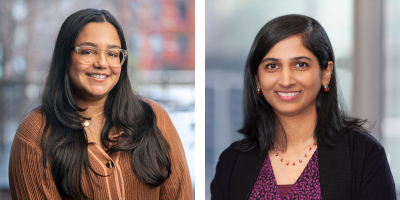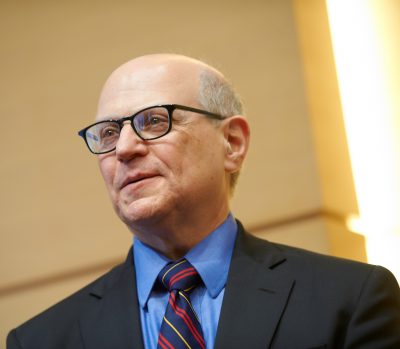
Francesca Castro (left). Photo by Chad Hunt.
Dr. Urvi Shah (right). Photo by Ethan Kavet.
Americans eat loads of ultra-processed foods, from soda to cold cuts to potato chips. But could these items be contributing to cancer rates?
Perhaps. In an article for VeryWellHealth, MSK Dietitian Nutritionist Francesca Castro notes that ultra-processed diets are generally low in fiber, which is known to protect against many cancers. Still, there are other foods that can increase cancer risk, like red meat.
Castro concludes, “There’s no one food or food group that can cure cancer or reduce cancer risk.” She recommends people look critically at their overall diet and think about whether they could benefit from eating more vegetables, fruits, and fiber.
Want to learn more? Listen to an interview with MSK’s Dr. Urvi Shah on the Healthcare Unfiltered podcast. She discusses the challenges of doing nutrition-related research, along with findings by her and others in the field about diet and cancer risk. Her descriptions of this research begin around 17:30. (Spoiler alert: eat more plant-based foods.)

